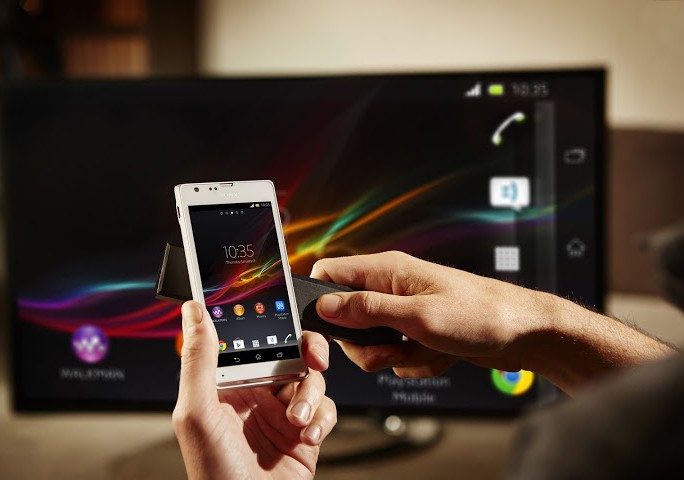A new report from research firm NPD Group has highlighted how the television viewing habits of people have changed thanks to technology.
The study found that 87 percent of US entertainment consumers say they use at least one second-screen device while watching television.
Dual Screening
These consumers, says the report – which adds that 88 percent of households have a device that can be used as a second screen – are splitting their attention between TVs and laptops, tablets, smartphones or other devices.
More often than not (60 percent of the time) it’s a PC that’s being paired with a television. Nearly as often, though, it’s a smartphone (55 percent of the time) or a tablet (49 percent). E-readers are used 20 percent of the time.
 The two-screen viewers, says the report, are generally multitasking, but a minority are complementing their viewing experience with “play-along games, check-in rewards, live voting and other interactive features” that are “highly effective for the minority of … viewers, but do not resound with most.”
The two-screen viewers, says the report, are generally multitasking, but a minority are complementing their viewing experience with “play-along games, check-in rewards, live voting and other interactive features” that are “highly effective for the minority of … viewers, but do not resound with most.”
The popular AMC show “The Walking Dead,” for example, encourages viewers to use a second screen to access a feature called StorySync – which is compatible with iOS and Android – in order to “Join fellow fans online for snap polls, cool trivia and exclusive video while watching the premiere broadcast of the latest episode on-air.”
Approximately 10 percent of second-screen users said they use their second screen to vote for something on a show, while 9 percent have followed a stream of comments about a show.
That majority using their second screens for non-guided purposes, however, are most often learning about actors or actresses (30 percent) or learning about the show or movie they’re watching (23 percent).
Sales Potential
Advertisers will be pleased to know that 19 percent actually stop to shop for a product in an ad.
Russ Crupnick, senior vice president of industry analysis at NPD, notes, “Converting viewers into impulse shoppers has big potential impact for advertisers, who can leverage second screens to further connect with consumers watching TV.”
But that rose has some thorns.
Second screens offer a diversion from commercials, and so, Crupnick added, in an 9 April statement, “it will take a combined effort from content owners, advertisers, broadcasters and others to present an aligned second-screen experience that will appeal to viewers.”
TV Changes
Apple, Samsung and others are also aware of the multiple screens in our lives and are working on ways to make us tune into more at once.
On 20 March, Samsung showed off its 2013 line of smart TVs, which can communicate with a user’s smartphone, making it possible to pass photos or music between them, and recommend programming you might like, based on what you’ve previously watched.
Apple is rumoured to be working on an “iTV” that will come with a second, smaller display – a “mini iTV” – that a program can be passed to, so a viewer can leave the room or watch in a room (ahem) without a television.
Experts expect that as the number of devices each of us uses increases, more data will reside on the cloud and we’ll have equal access to it, whether through a tablet or a television.
AT&T’s director of Mobility Marketing, Mobeen Khan, has told eWEEK that AT&T is focusing on “personas.”
“What that means is, when you come into work, if you log into your tablet it gives you access to your work apps. But when you’re watching your TV, you can also access social networks,” said Khan. “But perhaps someday on your home TV there will be a container for work content, too.”
For now, no one directly told NPD that they’re working on one of their screens and watching on the other. Although 53 percent of those surveyed did say they were doing “none of the above” – which is to say, not doing anything on their second screen that’s related to what’s playing on the first.
Are you an insanely great Apple expert? Try our quiz!
Originally published on eWeek.




